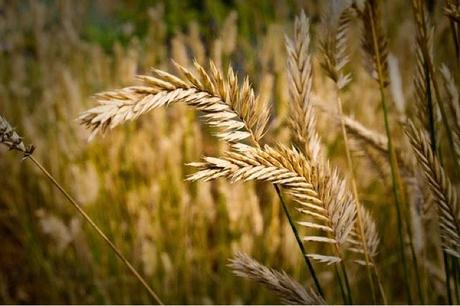Because they are tied together and so to hurt one would hurt the other so the separation doesn't happen until harvest time. That implies that we have until judgment day to settle our affairs but the kicker is that we will never know when that will happen.
We are taught to live well because we never know how much time we will have, we will never know when our time is up until it happens and Jesus says only the Father knows.
Here is the parable:
24 Another parable He put forth to them, saying: “The kingdom of heaven is like a man who sowed good seed in his field; 25 but while men slept, his enemy came and sowed tares among the wheat and went his way. 26 But when the grain had sprouted and produced a crop, then the tares also appeared. 27 So the servants of the owner came and said to him, ‘Sir, did you not sow good seed in your field? How then does it have tares?’ 28 He said to them, ‘An enemy has done this.’ The servants said to him, ‘Do you want us then to go and gather them up?’ 29 But he said, ‘No, lest while you gather up the tares you also uproot the wheat with them. 30 Let both grow together until the harvest, and at the time of harvest I will say to the reapers, “First gather together the tares and bind them in bundles to burn them, but gather the wheat into my barn.” Matthew 13:24-30The sun shines on the sinner as well as the saint. Both the righteous and sinful farmers see their fields receive rain and produce good yields.The problem I see with the traditional lessons I've heard on this is that blessings are directly tied to obedience to the church and to the gospel. That teaches that if you are obedient then and only then can you be blessed. But when the most obedient amongst us then face hardships and tragedy they will likely feel betrayed and their faith may falter or evaporate.And when the obedient see others who are sinful receive blessings the traditional interpretation falls apart as well.Part of the flaw in this interpretation is that it assumes only good things happen to good people and only bad things can happen to bad people. But because God does so much for us we often feel all things come from God but that denies the free will and agency of all Gods' children.Blessings and hardships are often due to the words and actions of others, not everything good or bad comes from God, often it comes from a neighbor or coworker, friends and family. We all have greater influence than we see day to day.But as Jesus said "No, lest while you gather up the tares you also uproot the wheat with them." By harming one you may harm all and so God does not gather up all the sinners and cast them away, we have until the harvest to ready ourselves.And besides according to Paul "For all have sinned, and come short of the glory of God." Romans 3:23So in a sense all of us are Tares compared to Christ so none is qualified to judge but Christ because only Christ knows the contents of our hearts.The Atonement is what can turn a sinner into a saint, only the Atonment can turn us from Tares into wheat.

